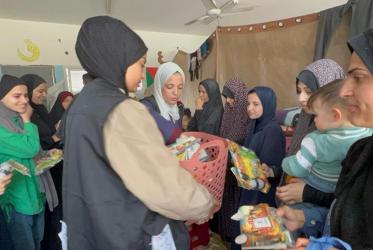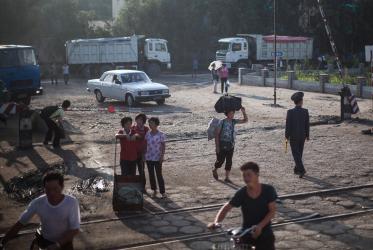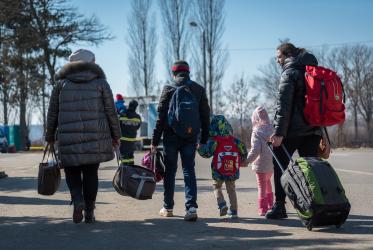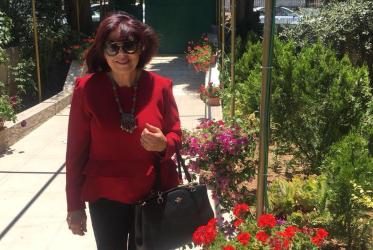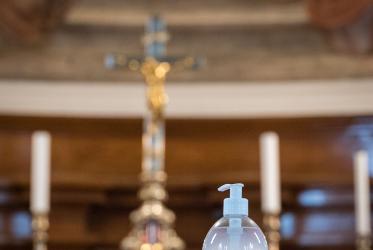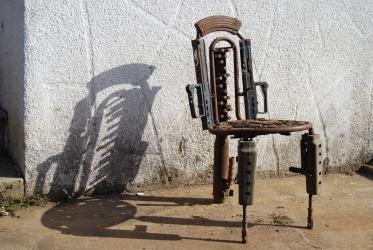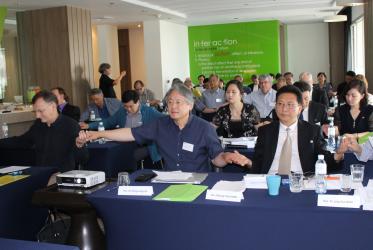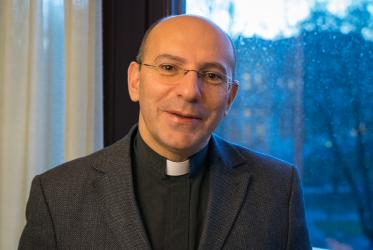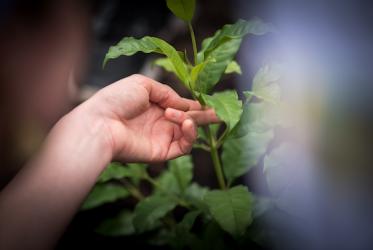Displaying 1 - 20 of 98
Displaced people south of Gaza face extreme difficulty
21 December 2023
"A world free from nuclear weapons is possible"
11 September 2023
WCC honoured with Geneva Engage Award
01 February 2022
Peace and unity on the Korean Peninsula matters globally
25 February 2021
A hopeful, but not optimistic Palestinian ecumenist
09 December 2020
Church of South India eco-ministry featured on UNESCO website
17 February 2020

